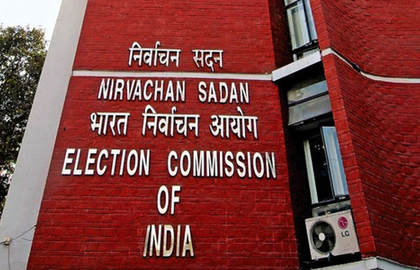No requests for EVM burnt-memory verification in Bihar polls: ECI
By IANS | Updated: November 27, 2025 18:45 IST2025-11-27T18:41:31+5:302025-11-27T18:45:19+5:30
New Delhi, Nov 27 The Election Commission of India (ECI) on Thursday said that not a single request ...

No requests for EVM burnt-memory verification in Bihar polls: ECI
New Delhi, Nov 27 The Election Commission of India (ECI) on Thursday said that not a single request was received from losing candidates for verification of the burnt memory or microcontroller of Electronic Voting Machines (EVMs) in the recently concluded 2025 Bihar Assembly elections and associated bye-elections in eight states.
The Commission clarified that despite provisions allowing such checks, no candidate from any of the 243 Assembly constituencies in Bihar or the eight seats that went to bypolls sought the verification.
As per the Supreme Court’s directions, the ECI had issued a revised Standard Operating Procedure (SoP) on June 17, 2025, enabling candidates who finished in the second or third position to apply for post-counting verification of EVMs within seven days of the declaration of results.
“Election Commission of India ECI has marked several firsts with the successful conduct of the Bihar Legislative Assembly elections, 2025,” the ECI said in its press note.
“Mandatory verification of VVPAT slips was done for 5 randomly selected polling stations per Assembly Constituency (total 1,215 polling stations) and no discrepancy was found with the EVM count anywhere,” it said.
It also highlighted that there were zero appeals regarding the wrongful inclusion or exclusion of voters during the Special Intensive Revision of electoral rolls across all 38 districts.
“No re-polls were requested by any of the 2,616 candidates or by any of the 12 recognised political parties,” it said.
It further added that, “Index Cards for Bihar elections and bye-elections in 8 ACs, have been made available for the first time within 72 hours of the declaration of the poll results.”
Notably, statistical reports of the elections were also uploaded to the public domain free of cost within five days, providing researchers, academics, and the public with quick access to detailed poll data.
Disclaimer: This post has been auto-published from an agency feed without any modifications to the text and has not been reviewed by an editor
Open in app